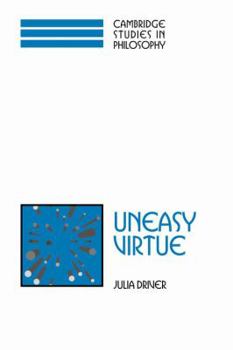Uneasy Virtue
Select Format
Select Condition 
Book Overview
The predominant view of moral virtue can be traced back to Aristotle. He believed that moral virtue must involve intellectual excellence. To have moral virtue one must have practical wisdom - the ability to deliberate well and to see what is morally relevant in a given context. Julia Driver challenges this classical theory of virtue, arguing that it fails to take into account virtues which do seem to involve ignorance or epistemic defect. Some 'virtues of ignorance' are counterexamples to accounts of virtue which hold that moral virtue must involve practical wisdom. Modesty, for example, is generally considered to be a virtue even though the modest person may be making an inaccurate assessment of his or her accomplishments. Driver argues that we should abandon the highly intellectualist view of virtue and instead adopt a consequentialist perspective which holds that virtue is simply a character trait which systematically produces good consequences.
Format:Paperback
Language:English
ISBN:052103406X
ISBN13:9780521034067
Release Date:February 2007
Publisher:Cambridge University Press
Length:160 Pages
Weight:0.55 lbs.
Dimensions:0.4" x 6.0" x 9.0"
Related Subjects
Ethics Ethics & Morality Logic Logic & Language Philosophy Politics & Social SciencesCustomer Reviews
0 rating





